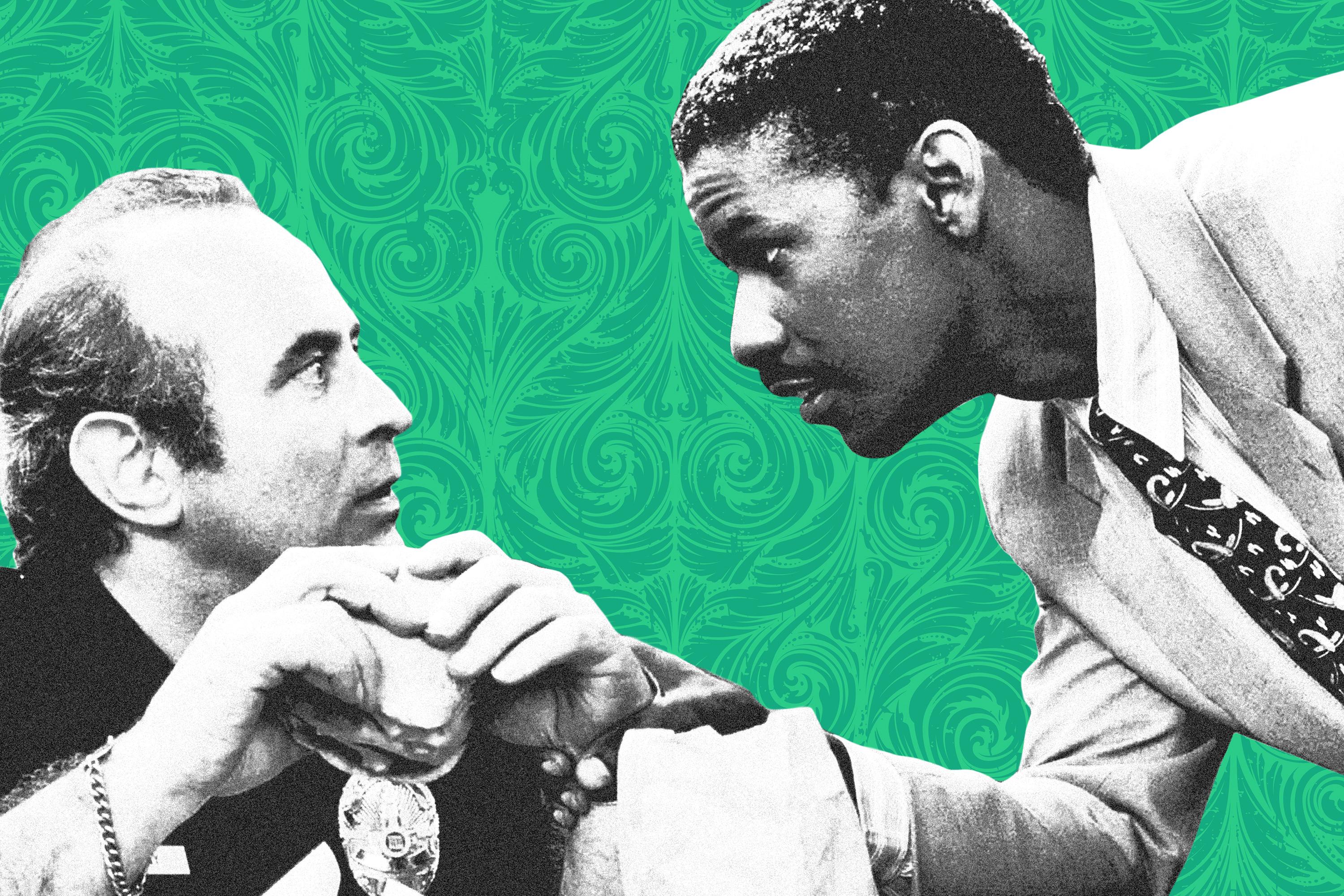
Denzel Washington is the greatest actor alive, don’t @ us. From the stage to the big screen, Denzel brings both gravitas and undeniable charm to all of his roles. Ahead of Thursday’s release of Roman J. Israel, Esq., we’re celebrating Denzel all day here at The Ringer.
Denzel Washington is not in the business of making mistakes. With two Academy Awards, two Golden Globes, a Tony, an Obie, a Screen Actors Guild Award, 17 NAACP Image Awards, a pair of MTV Awards, a BET Humanitarian Award, an AARP Movies for Grownups Award for Best Actor, one Jupiter Award, a Saturn Award nomination (not related), six Black Reel Awards, two Silver Bears (a real thing), a Golden Apple (also a real thing), Sexiest Man Alive cred, the Golden Globe Cecil B. deMille Award for outstanding contributions to the world of entertainment, all the status afforded to the reigning Publicists Guild’s Motion Picture Showman of the Year, and a fan-made podcast called Denzel Washington Is the Greatest Actor of All Time Period, he is about as widely loved and respected as any actor-director-producer has ever been.
So I offer you this, a mid-30s, mustachioed Denzel describing — cover your ears, children — the size of his manhood as having a decidedly equine quality:
1990’s Heart Condition ranks among Washington’s most notable movies for the simple reason that it may well be his worst. Part buddy comedy, part racial drama, part police caper, and part romance — whatever face you’re making right now is the correct one — it tells the tale of Jack Moony, a gruff and deeply bigoted cop (played by the late, great Bob Hoskins, then fresh off Who Framed Roger Rabbit) who suffers a heart attack just as his professional and romantic rival, Napoleon Stone, a well-to-do black lawyer played by Washington, is killed. The burger- and booze-loving Moony is in need of a heart transplant, and the one he receives belongs to none other than Stone, whose penchant for aerobics while living kept his ticker in tip-top form. Soon after, Moony finds himself suddenly haunted by Stone’s ghost, who wants the cop to solve his murder — and, strangely, to make nice with their mutual ex-girlfriend, a sex worker played by Chloe Webb, who (surprise!) secretly gave birth to Stone’s baby. Despite shooting at Stone, calling him the n-word, and kicking him in his apparently prodigiously sized undercarriage within the film’s first 15 minutes, the racist cop comes to appreciate his ghost and repent (or something) for his misguided and prejudicial views. (Naturally, he cracks the case and gets the girl to boot.)
“We were lucky,” writer and director James D. Parriott says now of getting young Denzel involved.
The movie, a pastiche of dramatic guitar riffs, is certainly dated: One villain is undone when his gigantic, hip-holstered cellphone goes off at a pivotal moment, not long after growling about a ransom in progress, “It really irritates me when people don’t check their answering machine.” But it was never in style, either. The movie was universally panned, the review in The New York Times beginning, “Heart Condition, which is supposed to be funny…” Rolling Stone has named it Washington’s second-worst movie ever (ahead of just Virtuosity), as did Collider (ahead of Carbon Copy), while FiveThirtyEight singled it out as the biggest critical and commercial flop of Denzel’s career. In 2012, Complex dubbed the movie, which opted to highlight the bigoted Moony’s horror at his newly acquired heart via gags involving a black dildo and a copy of Ebony, the 21st most racist movie of all time. It has an astonishing zero-percent favorability score on Rotten Tomatoes, which is to say that nobody, not one single person tasked with watching and reviewing this movie, enjoyed it. It grossed barely $4 million, good for the third-worst box-office outing of any Denzel movie.
There’s also this, a pervasive rumor etched on Heart Condition’s Wikipedia page: “Washington was talked into making this movie by his agent. Afterwards, Washington fired him and only starred in one other comedy, The Preacher’s Wife (1996), until 2 Guns was released in 2013.” As compelling as this tale is, I am sad to report that it is false: “There is no truth to that rumor,” Washington’s publicist wrote in an email.
Still: Even if it wasn’t a fireable offense, Heart Condition is nobody’s idea of a very good time. “I don’t think that script was where it could have been or should have been,” Parriott says. It was the television veteran Parriott’s first time directing a feature film that he had also written; he would direct just two more before returning to TV for good. (“I didn’t want to make another mediocre movie,” Parriott says of a post–Heart Condition, and decidedly Heart Condition–esque, opportunity with MGM that he walked away from. Parriott’s TV credits include seven series of his own creation, including 2009’s Defying Gravity. He also served as an executive producer on the inaugural seasons of Grey’s Anatomy and Ugly Betty.) “I actually told my agent when he said they wanted me to direct Heart Condition,” Parriott says, “‘I don’t know if this should be my first movie.’ And he said, ‘No, you have to!’ And I went, ‘Uhh …’”
Washington arrived on Heart Condition’s set just as he finished filming Glory, for which he would win his first Academy Award. But in that moment, the actor was still relatively unknown. “He was … looking for his next project and was ready to just explode, and hadn’t yet,” Parriott says. “It was really a coup. I had to talk him into it over lunch.”
“We shot the movie, and during that summer as I was editing it, Glory came out. All this buzz happened, and then it opened and suddenly Denzel was this huge star. So by the time we were promoting our movie — well, I think Denzel won his Oscar before we opened.” (In truth, he won it two months later, by which point Heart Condition had already been tossed into the critical rubbish heap. Just a week after Heart Condition debuted, it already trailed the then-two-month-old Glory at the box office.)
“It was crazy to watch,” says Parriott.
And then, just as Washington captivated nationwide audiences with gravitas and gained the critical acclaim he still holds … dildo jokes and Racism 101 lessons. At one point, upon entering a hip-hop bowling alley (???) where Denzel’s character stashed money in his pre-ghost time, Hoskins’s cop is astonished to learn that black people bowl. “Yeah, and we swim, too,” deadpans Washington.
“The movie definitely didn’t help him,” Parriott concedes. “It didn’t encourage him to do other comedies, for sure.”
As for the Shetland pony line: There was apparently no ad-libbing. Parriott says that was just the way he wrote it.

